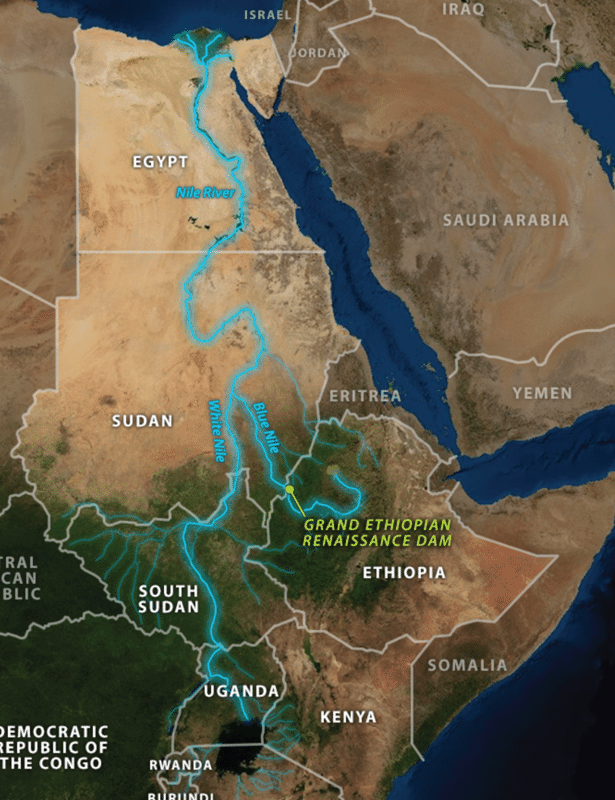The Nile River was also the subject of a creative attempt to secure an existence. In 1903, Theodor Herzl, the Hungarian Jewish journalist and founder of political Zionism, the movement to establish a Jewish homeland, developed a proposal to build a Jewish settlement. He believed that the Jewish Question was a political question that should be settled by a world council of nations. When his attempt to negotiate with the Sultan of Turkey for a charter to allow Jewish mass settlement in Palestine failed, he asked Great Britain to allow him to establish his Jewish settlement in British-controlled territory in the Sinai Peninsula (part of Egypt).
The proposal was to build settlements in the desert close to the Palestinian and Egyptian borders. His master plan included settling 100,000 Jewish settlers from around the world in the desert. To address the critical question of available water, Herzl proposed diverting water from the Nile River through a tunnel under the Suez Canal. His idea was rejected by the British as colonial development experts warned the government that drawing water from the Nile would threaten the cotton farmers that were crucial to the British textile industry. In response, the British proposed that Herzl build his Jewish settlement in colonial Uganda, which was rejected by the Zionist Congress in 1903. Many believe that the 1997 Al-Sheikh Gaber Al-Sabah Canal project, in which Egypt diverted Nile waters under the Suez Canal in order to irrigate the Sinai, was an idea borrowed from Herzl.


Recent Comments